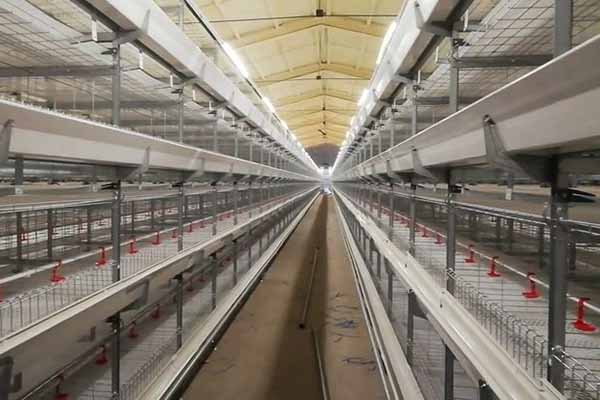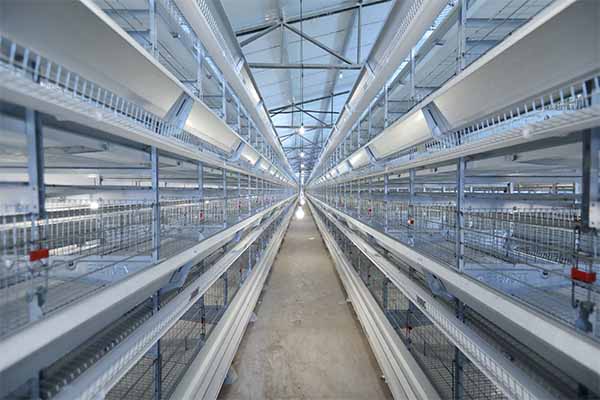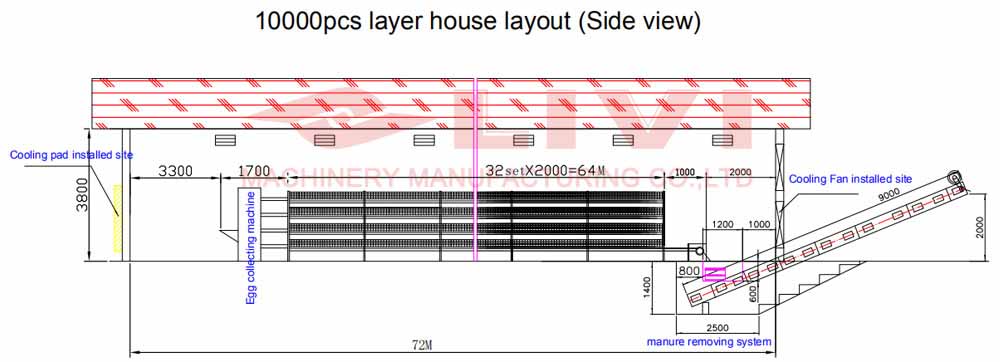Uganda Chicken Farm Daily Maintenance Points: A Comprehensive Guide
Time : 2025-04-23
Running a chicken farm in Uganda can be quite rewarding, but it also requires a considerable amount of daily maintenance to ensure the health and productivity of your flock. In this article, we’ll cover the essential daily maintenance points that every chicken farmer in Uganda should be aware of. So, let’s get into it!

The Importance of Daily Maintenance
Daily maintenance is crucial for any chicken farm, whether you’re raising broilers for meat or laying hens for eggs. A well-maintained farm can lead to healthier ch ickens, higher production rates, and ultimately, better profits. So, let’s dive into the details of what daily maintenance entails.
ickens, higher production rates, and ultimately, better profits. So, let’s dive into the details of what daily maintenance entails.
1. Feeding
Feeding your chickens is the most critical aspect of daily maintenance. Here are some points to consider:
- Quality Feed: Ensure you’re providing your chickens with a balanced and nutritious diet that meets their specific needs. In Uganda, you can find specialized chicken feed at most agriculture stores.
- Regular Intake: Chickens should have access to feed throughout the day, especially during hot weather when they need to consume more water and food to stay hydrated.
- Water Intake: Fresh, clean water should be available at all times. Replace the water in the drinkers daily and clean the drinkers to prevent bacterial growth.
2. Cleaning and Sanitation
Sanitation is key to preventing diseases and keeping your chickens healthy. Here are some tips:
- Cleaning Coops: Clean the chicken coop daily to remove waste and prevent diseases. Use a broom to sweep the bedding and remove any droppings.
- Disinfection: Regularly disinfect the coop and any equipment used in the farm to kill any potential pathogens.
- Footbaths: Use footbaths at the entrance of the coop to minimize the spread of diseases from the outside environment.
3. Ventilation
Proper ventilation is crucial for maintaining a comfortable environment for your chickens and preventing respiratory diseases. Here are some guidelines:
- Natural Ventilation: Ensure that the coop has enough windows and openings to allow for natural air flow. Avoid direct sunlight during the hottest parts of the day.
- Artificial Ventilation: If natural ventilation is not sufficient, consider using fans or other artificial ventilation methods.
4. Health Monitoring
Regularly check your chickens for signs of illness or injury. Here are some tips:
- Physical Examination: Gently inspect your chickens for any signs of discomfort, such as hunched posture, loss of appetite, or discharge from the eyes or nostrils.
- Weight Check: Regularly weigh your chickens to monitor their growth and health. Any significant weight loss could indicate a health issue.
- Vaccinations: Follow a vaccination schedule to protect your chickens from common diseases.
5. Managing Pests and Rodents
Pests and rodents can cause significant damage to your chicken farm. Here are some methods to manage them:

- Secure Coop: Ensure that your coop is well-constructed and free of any gaps or holes that pests or rodents can enter through.
- Natural Predators: Encourage the presence of natural predators like owls, hawks, or snakes in the area to control rodent populations.
- Traps and Baits: Use traps and baits to control pests and rodents. Be cautious when using chemicals or poisons to avoid harming your chickens or the environment.
6. Egg Collection and Handling
Regularly collect eggs from your laying hens to ensure they don’t become dirty or broken. Here are some tips:
- Collected Daily: Eggs should be collected at least once a day, preferably in the morning.
- Clean Eggs: Store eggs in a clean, dry, and cool place. Avoid storing them near strong-smelling foods or in direct sunlight.
7. Record Keeping
Keeping accurate records of your chicken farm’s activities is essential for monitoring performance and making informed decisions. Here are some points to consider:
- Feeding and Water Intake: Keep track of the amount of feed and water consumed by your chickens daily.
- Health and Vaccination Records: Maintain a record of your chickens’ health status, vaccinations, and any treatments given.
- Egg Production: Monitor egg production rates and identify any fluctuations that may indicate a problem.
Conclusion
Daily maintenance is a crucial part of running a successful chicken farm in Uganda. By following these maintenance points, you can ensure the health and productivity of your flock, leading to better profits and a sustainable farm operation.











